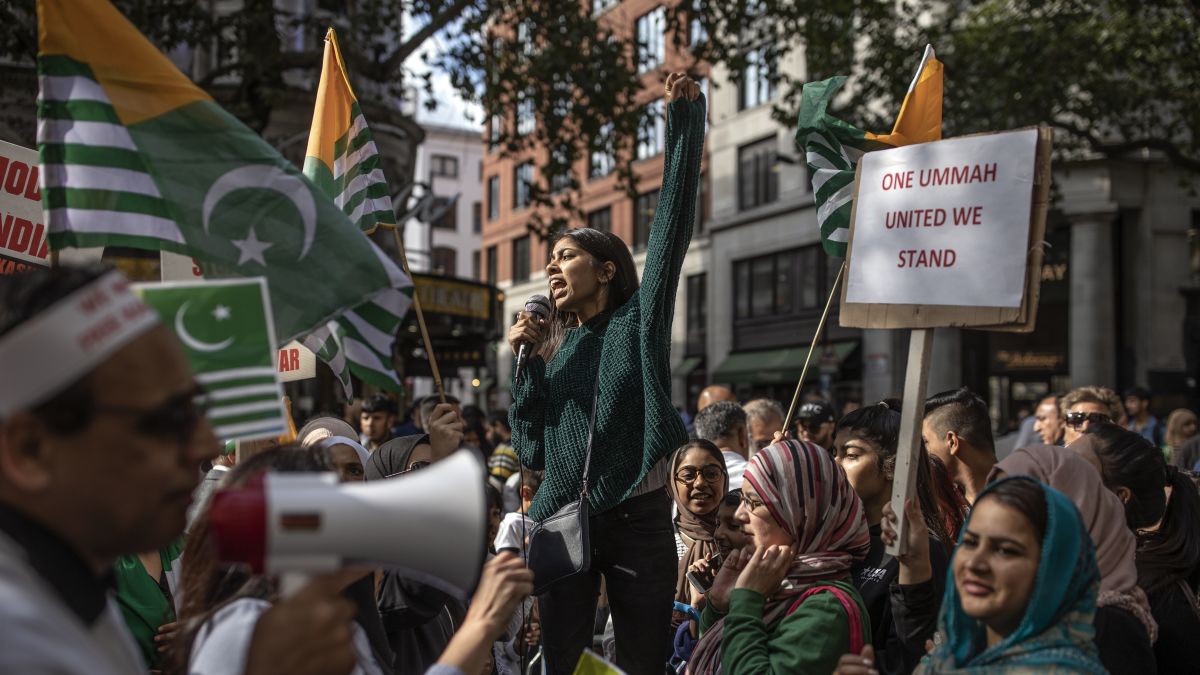Political analyst Dr. Irfan Raja discusses the need for the United Nations to ensure a fair future to Kashmir.
This year, the United Nations General Assembly has turned 74 years old. The General Assembly is a “world parliament, where all the UN’s 193 member states are represented”. As the world’s largest forum, it hosts Premiers and Presidents that gather to discuss and debate issues affecting their countries, hoping that the UN will help address those matters. But so far, it has failed to settle any conflicts.
So, the question then arises: has the United Nation’s Security Council failed in the very aim of its existence? If it could not exercise authority over nations, should it be abolished or restructured? To date, the two oldest and more pressing issues, Palestine and Kashmir, have not yet been solved despite numerous resolutions passed by the Security Council.
Last week, Imran Khan delivered a historic speech at the UN congregation, in which he warned that “two nuclear armed countries will come face to face” mainly because of a decades long Kashmir conflict for which the United Nations has passed 21 resolutions.
These resolutions urged India to allow Kashmiris to exercise their right of self-determination. Khan said that the Kashmir conflict is a test case for the United Nations because it was the United Nations themselves that guaranteed Kashmir’s ‘right to self-determination’.
The UNSC Resolution 47, which authorises the people of Kashmir to decide their destiny in a plebiscite, is a long-awaited UN promise. Will the United Nations reinstate its decades-old promise? What happens if it fails again? Can we afford a nuclear war over Kashmir?
The 70-year-old Kashmir conflict is once again a part of the UN General Assembly’s agenda in New York. Since the “abrogation of Jammu and Kashmir’s special status” on August 5, millions of Kashmiris have been living in the world’s biggest concentration camp. One could call it genocide or a planned ethnic cleansing, and it must be stopped. But the question is, is this possible? What is the cost?
Might it be a full-scale nuclear war, or a limited conventional war? In any case, the consequence of the conflict will be rivers of bloodshed. Are international and regional powers serious in their intentions to halt this possible nuclear war between Pakistan and India? Only time will tell, but until now, the international community has been quiet on this front.
Too often, the West sees Kashmir as a territorial and bilateral issue between India and Pakistan. The fact of the matter is that it is not only a territorial issue, but rather a forgotten promise to the people of Kashmir that their destiny will go through a ballot, that their fate is not to be decided by India and Pakistan.
So far, the UNSC has disappointed many Muslims on several issues, including Palestine, Kashmir, Iraq and Syria. Tayyip Erdoğan, President of Turkey, has in the past criticised the role of the United Nations and the Security Council, particularly in regard to Muslim issues around the world.

Erdoğan has a valid point, because the United Nations was quick to respond to the East Timor and Rwanda crisis, but it is reluctant to retort to the humanitarian crisis in Kashmir, Myanmar, Uighur and other Muslim territories. Erdoğan believes that there is not a single example to date of justice for Muslims. He has also raised concerns about the fact that there is not a single permanent Muslim member in the UN Security Council. This testifies a disparity in representation, when one considers there are 1.7 billion Muslims worldwide.
The organisation has in particular lost the trust of Muslims around the globe. Today, millions of Muslims are forced to live in concentration camps across India and China. The Indian government often reminds us that it is one of the world’s oldest democracies, yet it has stripped millions of Muslims in the State of Assam of their citizenship. What kind of supposed democracy would allow such discrimination to take place?
The UNSC that is supposed to prevail peace in the world is continuously failing. Carne Ross asks a pertinent question: “The UN is failing, is it heading the way of the League of Nations?”
Its past experience as a diplomat and political advisor shows that Ross could indeed be right, since it has mostly failed to halt wars and covert operations in the Middle East, Asia and Africa.
Think of the ongoing persecution of the Muslims in Myanmar and the Xinjiang Province of China, an event that is being called a ‘cultural genocide’.
The United Nations and the international community need to act quickly to address Kashmir’s conflict before it turns into a full-scale war. It will not only threaten the masses of India, Pakistan and Kashmir but could also put global security and the UN’s already fragile reputation at stake.

